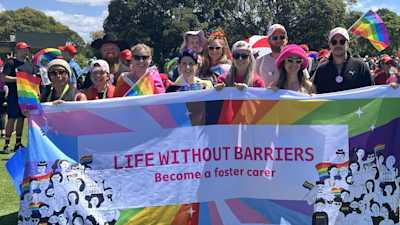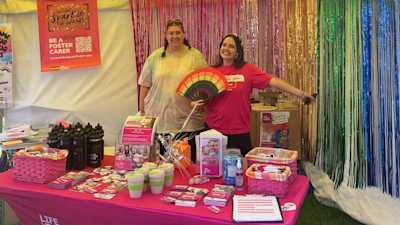Our team understands what you’re going through and wants you to know they are here to listen.

Image: A young woman with long brown hair, wearing a white top, sits against a fence, looking towards the ground.
Asking for help can be difficult, especially if you have concerns about how others might react or who might be notified if you share certain types of information. But knowing there are compassionate people who understand what you’re going through and are ready to support you can make a world of difference.
This is what the team behind Life Without Barriers' Forced Marriage Specialist Support Program (FMSSP) want anyone seeking support to know – whether you’re living in a forced marriage, you’re concerned you'll be forced to marry, or you know someone who is.
You’re not alone, and you don’t need to have everything figured out before reaching out for help.
Support can look like anything, even if it’s just a phone call to begin with, says Susan, who helped to launch the specialist program.
"If that’s all someone can manage to start with, to test us out, to see what we know and what we’ll do, I invite them to give it a go," Susan said.
"We deeply care. And we’re here when they’re ready."
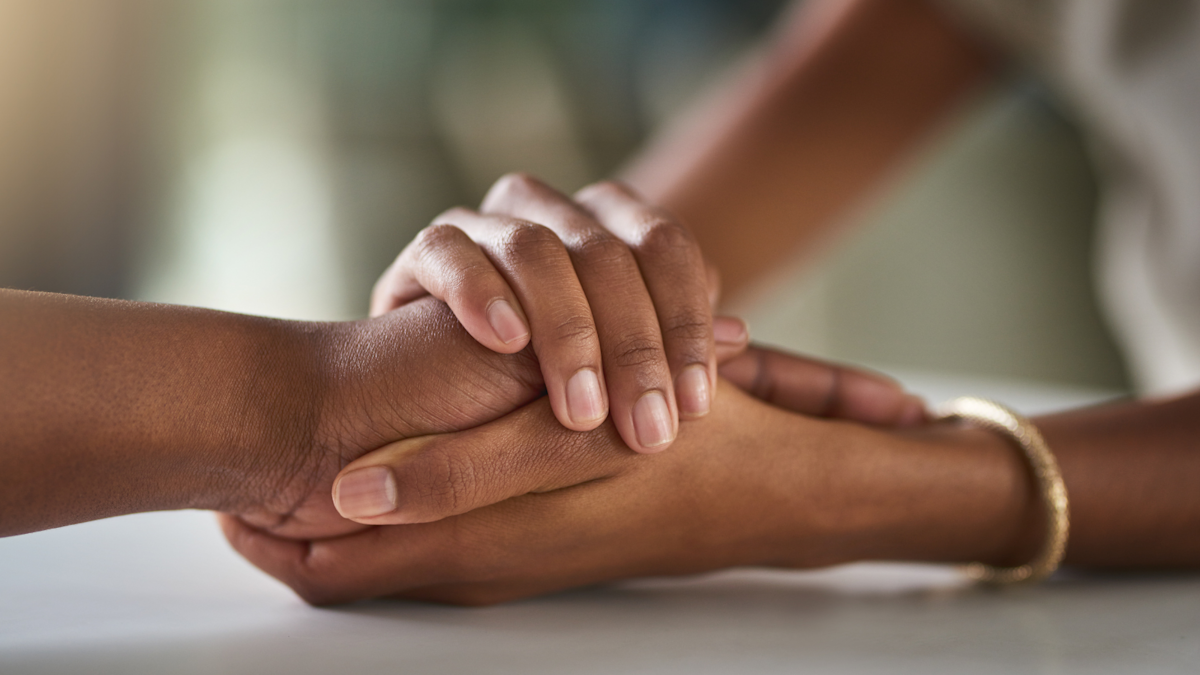
Image: A close-up of two hands clasped together.
That sentiment is echoed by Eriona, who leads intake for the program. For her, the first step for anyone potentially seeking support is to understand that walking through the door doesn’t mean you lose your choices. In fact, it’s quite the opposite.
"This is your journey," she said.
"It’s about giving you the information and support to help you make the decisions you want for your life."
The program’s focus on avoiding judgement, not making assumptions, and never pressuring people to go down particular paths is something Sophie, FMSSP’s Operations Manager, wants highlighted.
"We’re here to support people with what they determine to be important," Sophie explains.
"It’s not about what we think they should do, or what anyone else thinks they should do. It’s about their goals, their wants, their life."
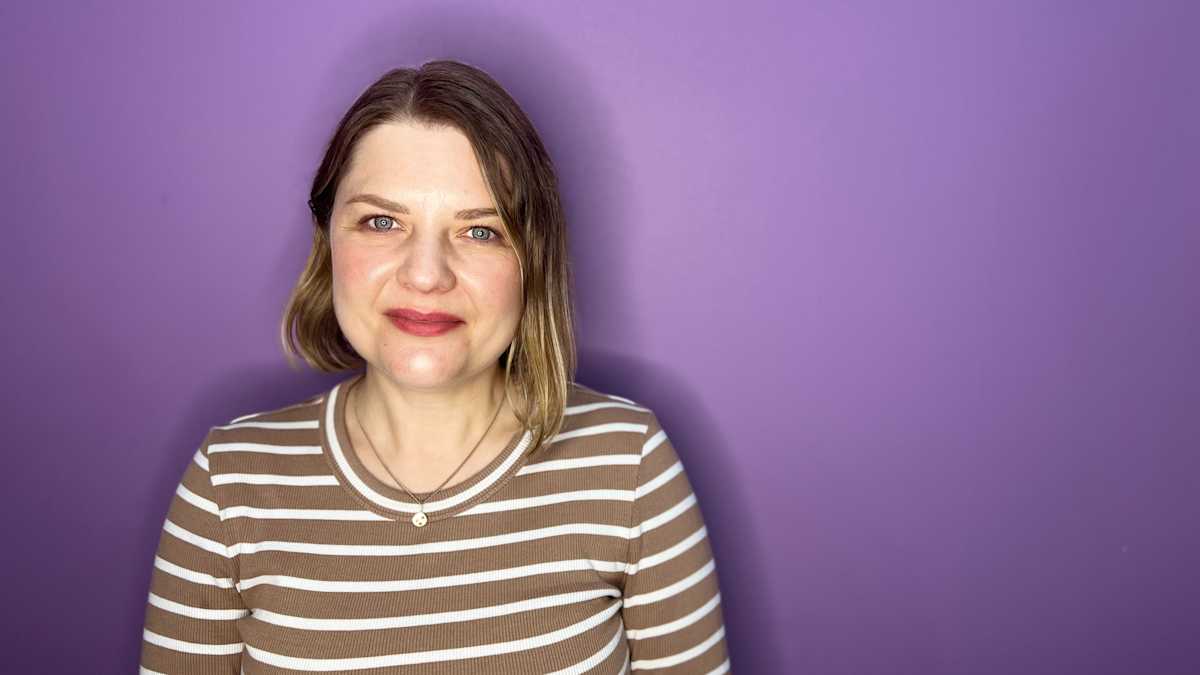
Image: Sophie, who has her hair in a short bob and is wearing a brown and white striped shirt, stands against a purple wall and smiles at the camera.
This person-led approach is what makes the new program so unique. Individual support plans are built in full consultation with each person. And those plans can change, because life changes.
As people’s needs evolve, so too should their support.
"There are options," says Sara, the program’s Operational Lead.
"If someone wants to reconnect with family or community, we’ll support that. And if they change their mind, that’s okay too. Their future isn’t locked in."
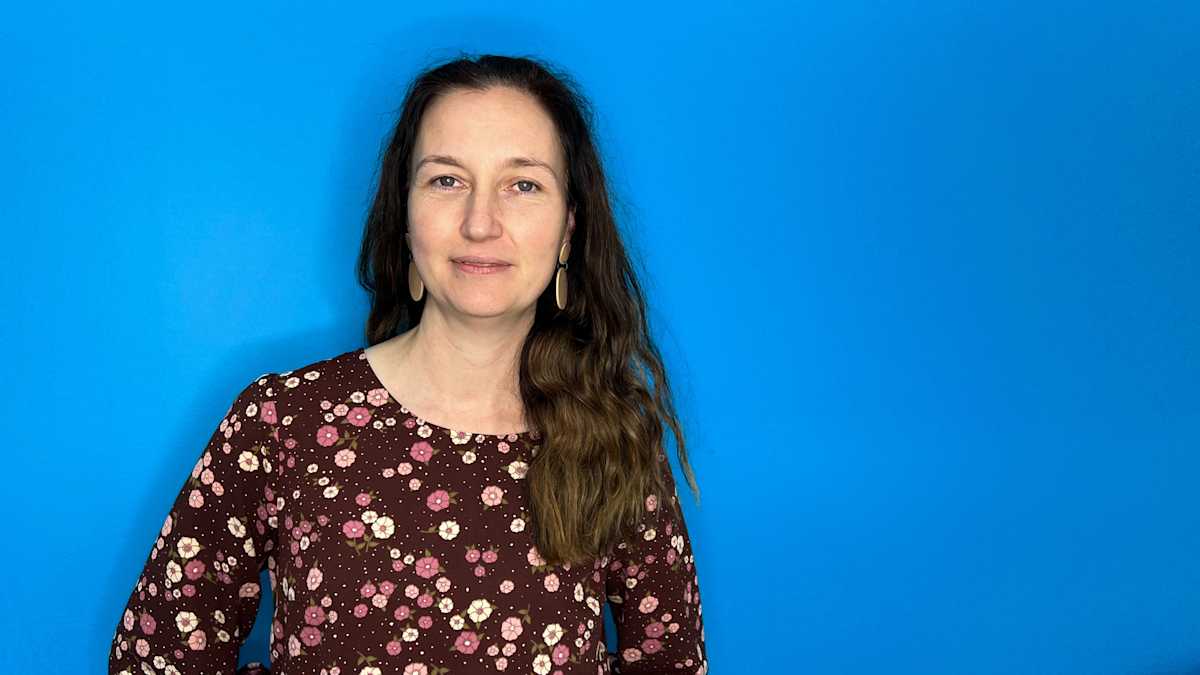
Image: Sara, who has long brown hair and wears a floral shirt, stands against a blue wall and smiles at the camera.
In a space that is often misunderstood and hidden, the message from the team is clear: there is hope.
Hope that things can be different. Hope that people can choose the path that’s right for them. Hope that even in a moment of fear or isolation, there is someone on the other end of the line who gets it and who cares.
"You don’t have to do this alone," Eriona said.
"There’s someone who will walk alongside you, not tell you what to do, but help you get to where you want to go."
And while care is an underpinning force of the program, so too is honesty. Knowing that trust is built on transparency, we’ll always be upfront about things like mandatory reporting if a person is under the age of 18.
"We sometimes don’t give young people enough credit," Eriona said.
"They understand more than we think. And when we’re honest with them, that’s when we see the real breakthroughs."

Image: A young woman with short brown hair wearing a light pink jumper is looking down whilst another person speaks to her.
So, if you’re reading this, and you’re scared, or unsure, or just curious, know this: you don’t have to commit to anything. You don’t have to explain everything. And you certainly don’t have to make any big decisions right now.
There are people here who care deeply and will listen. And we will be here when you’re ready.
Get support - help is here
Life Without Barriers is dedicated to providing discreet and accessible support to those in need. If you or someone you know is experiencing, or is at risk of experiencing, forced marriage, there are several ways to access support:
Call 1800 403 213 for a confidential conversation with a trained support worker.
Visit the Life Without Barriers forced marriage page to register for support and learn more about available resources.
National Help Lines: In case of immediate danger, contact the National Domestic Violence Helpline at 1800 737 732 or 1800RESPECT for text and online services.
Life Without Barriers is funded by the Department of Social Services to provide the Forced Marriage Specialist Support Program. Further information is available on the Department of Social Services website.
